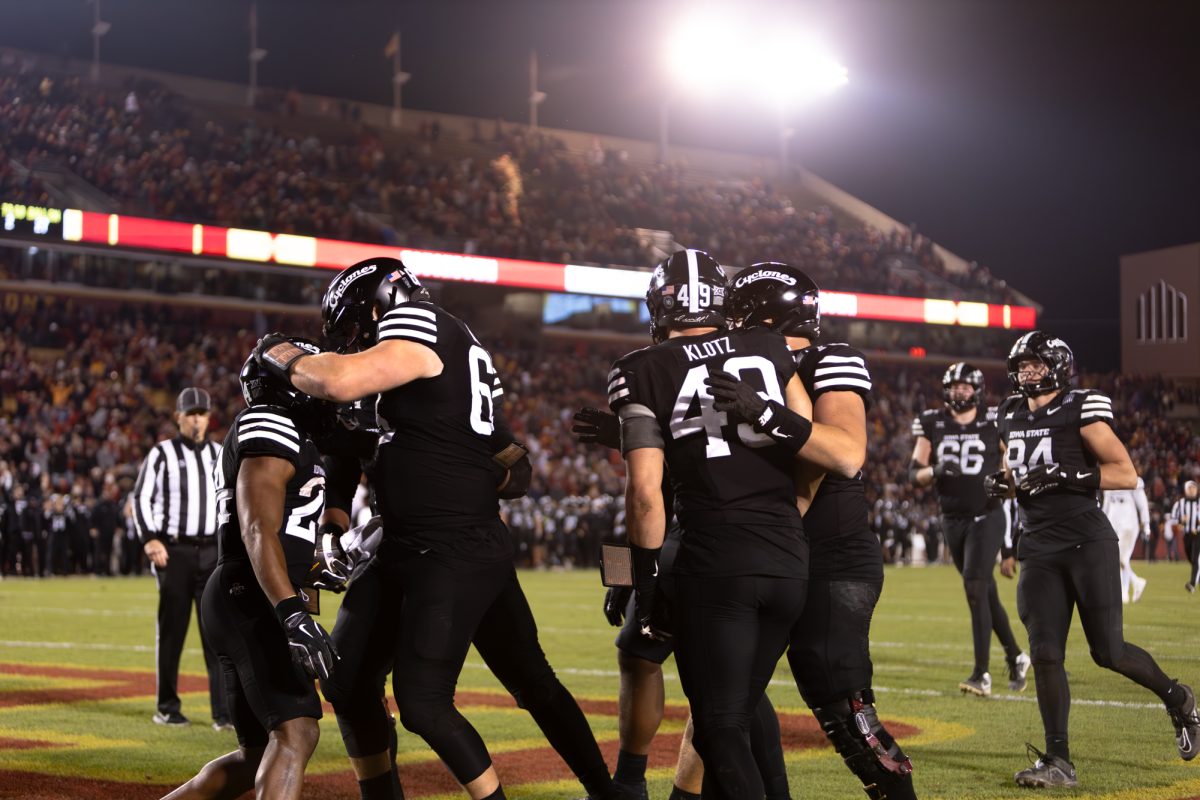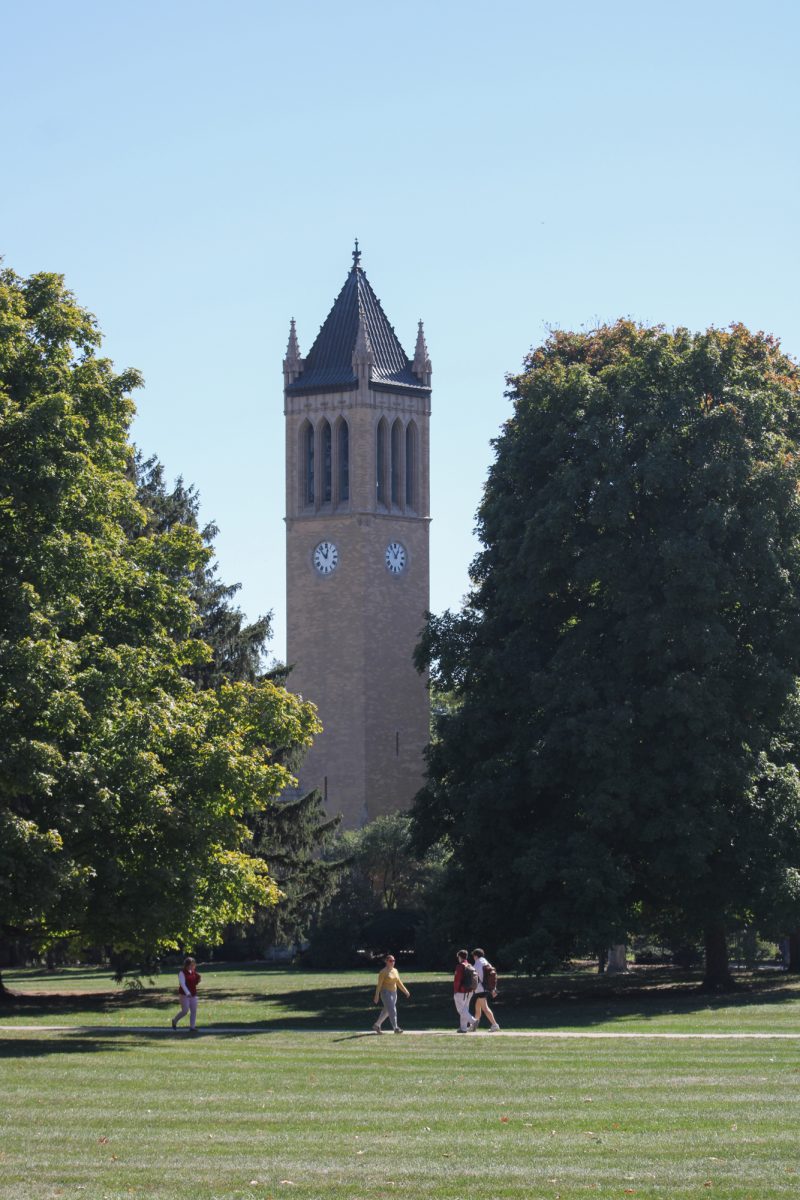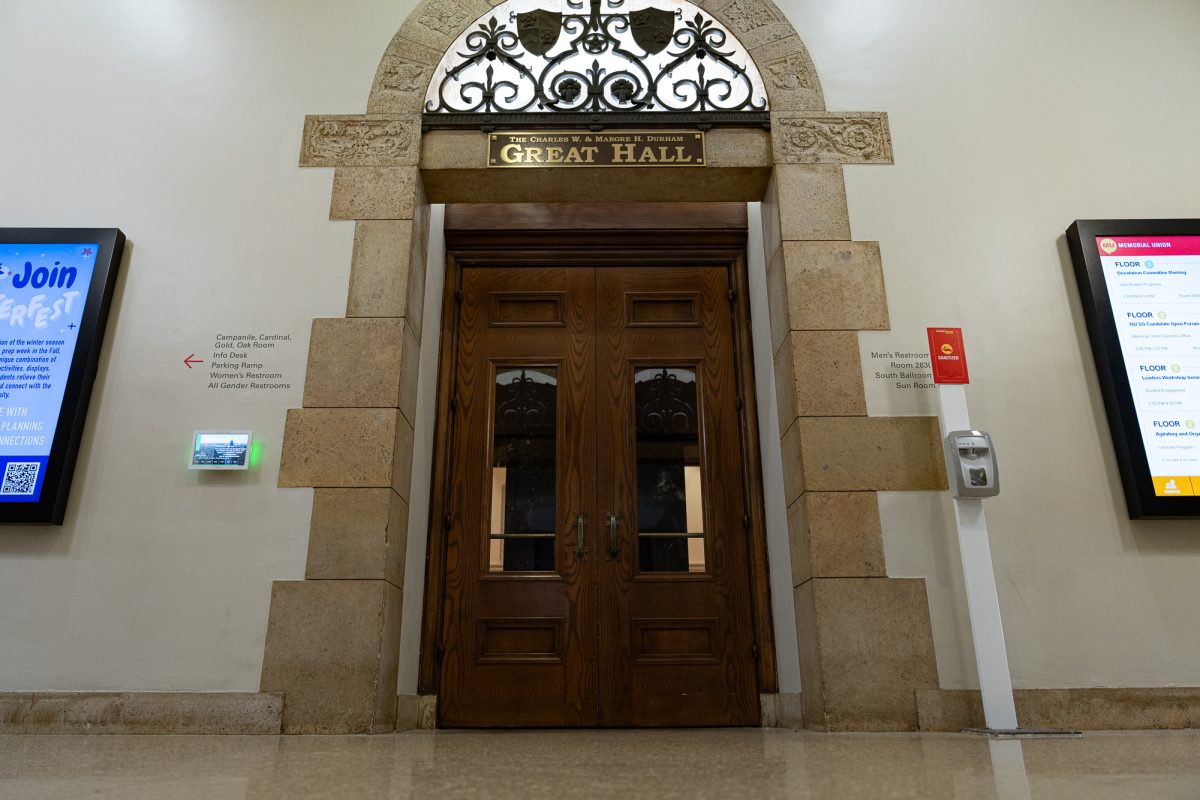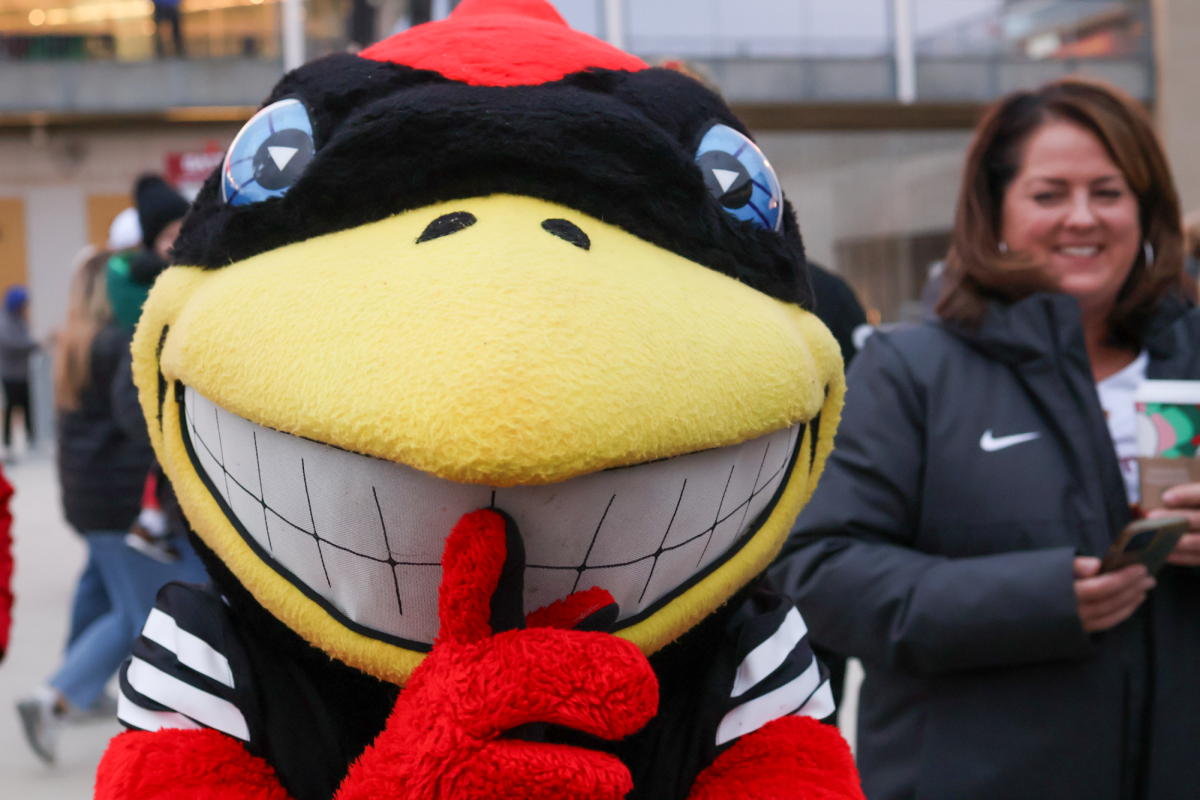Innocents Abroad: The Spanish expedition
June 14, 2000
I celebrated my 20th birthday in April — by far one of the most frustrating days I’ve ever had. Never mind that it was raining, cold and filled with work. Those things can’t be helped.
What I think is frustrating about reaching 20 is there are no added benefits that come with it. I can already drive, get married and vote, but the social privilege of walking into a bar with my friends and ordering a pitcher is still a year away. Like I said, frustrating.
Still, I am no longer a teen-ager.
Twelve years ago, when money was still something only my parents thought about, I made some pretty big plans for myself and what I would be doing once I reached the grand-old age of 20.
While the Broadway musicals and book publishers haven’t come knocking on my door yet, I am following through with one plan that my 8-year-old self would be proud of. I am going to Europe.
As you enjoy the beautiful Iowa weather, new classes and this column, I will be exploring Valladolid, Spain as part of an ISU Study Abroad program. The program is through the University of Valladolid, where I will be taking two Spanish language courses for five weeks. The sixth and final week there will be spent travelling around the country.
A couple months ago, I was hoping to come back to the States practically fluent in Spanish with a new view of the world. The closer my take-off day comes, the more my goals change. Right now, I am very focused on not crying when I get off the plane in Madrid and realize that no one is speaking English and I can’t remember how to say, “Where’s the bathroom?”
If I pee my pants, you’ll know why.
I will be living with a Spanish couple, their 25-year-old son and another ISU student, Melissa. According to the trip’s coordinator, Lorenzo, they’re very nice.
Lorenzo probably wouldn’t say they were nasty, smelly people, but Melissa and I are putting our trust in his good judgment right now. I hope we’ve put it in the right place; stories about host mothers serving boiled fish for supper every night keep racing through my head.
Besides Melissa and myself, there are also around 25 other ISU students going to Valladolid, only four of whom are guys. While this may seem like a tough ratio, I don’t think any girls, or guys, in our group will have a tough time finding fun. The Spanish are known for their different attitude toward women.
While this attitude may turn out to be one of my favorite aspects of the culture, I’m also a little uncomfortable about it. The idea of being catcalled by strange men as I walk down the street isn’t one I find particularly appealing.
But we’ll see what happens. I never said I wasn’t up for an adventure.
So, now you know a little bit about what I’m thinking as I fulfill this goal that’s been 12 years in the making.
In Spain: Anyone who has ever said the things you learn in class don’t show up in the real world is wrong. After my first week of studying abroad in Valladolid, Spain, all I can say is I wish I had studied the auxiliary verb forms of haber more during Spanish 202.
I have always approached learning Spanish as a sort of game. All of the verbs in their wonderful and various tenses were just like the roll of a dice. Every verb I learned would advance me a couple spaces to win the game, or get an A on the test. Vocabulary words were little bonuses along the way, like a Get Out of Jail Free card in Monopoly.
The idea of putting all of these verbs together to make a sentence was not something I had to do very much.
Like I said before, I wish I knew the auxiliary forms of haber more.
This realization first hit me as I stood in the bedroom of my new apartment, one day after arriving in Spain. It was about 10 in the morning and I had just arrived by taxi from the residence halls of the University of Valladolid, where we had stayed the night before.
I stood in the room, frowning in concentration as my host mother pointed out the different amenities of my new home. The towels, the sheets, the bed that folds down out of the closet.
Here’s a piece of plastic to put over the lace on the table, she says in fluent Spanish with the Valladolid accent, so that you don’t have to worry about staining it.
Blanca doesn’t speak any English. Her husband and father don’t either. Her son has studied a little of it, but not enough to understand what my roommate and I are saying if we accidentally use it during dinner.
As I unpacked my things, watched “Dennis the Menace” on TV and went grocery shopping with Blanca, the naked truth of how little I knew hit, knocking all of my playing pieces to the floor.
I went through the week wishing for the day that Blanca wouldn’t have to ask, “¨Tu no entiendes?” You don’t understand?
The weekend raised my hopes a little.
The resort cities of Santander and Bilboa are on the northern coast of Spain. Santander is known throughout Spain for its beaches and Bilboa is known throughout the world as the location of the newest Guggenhiem Museum. Both are incredible.
I couldn’t help feeling a little proud of myself as I bought train tickets, figured out bus schedules and found hostels; all in Spanish and with native speakers. Sure I don’t understand everything Blanca says, but that’s still better than understanding nothing at all.
This was made especially clear to me as I stood in the gift store of the Guggenhiem Museum in Bilboa watching an American tourist try to talk to the cashier across the counter.
“Yo hablo Ingles,” he said painfully. “I don’t understand you.”
If learning a language is like a game, I think I’m winning.
Andrea Hauser is a junior in journalism and mass communication from Edgewood and is currently studying abroad in Valladolid, Spain.






